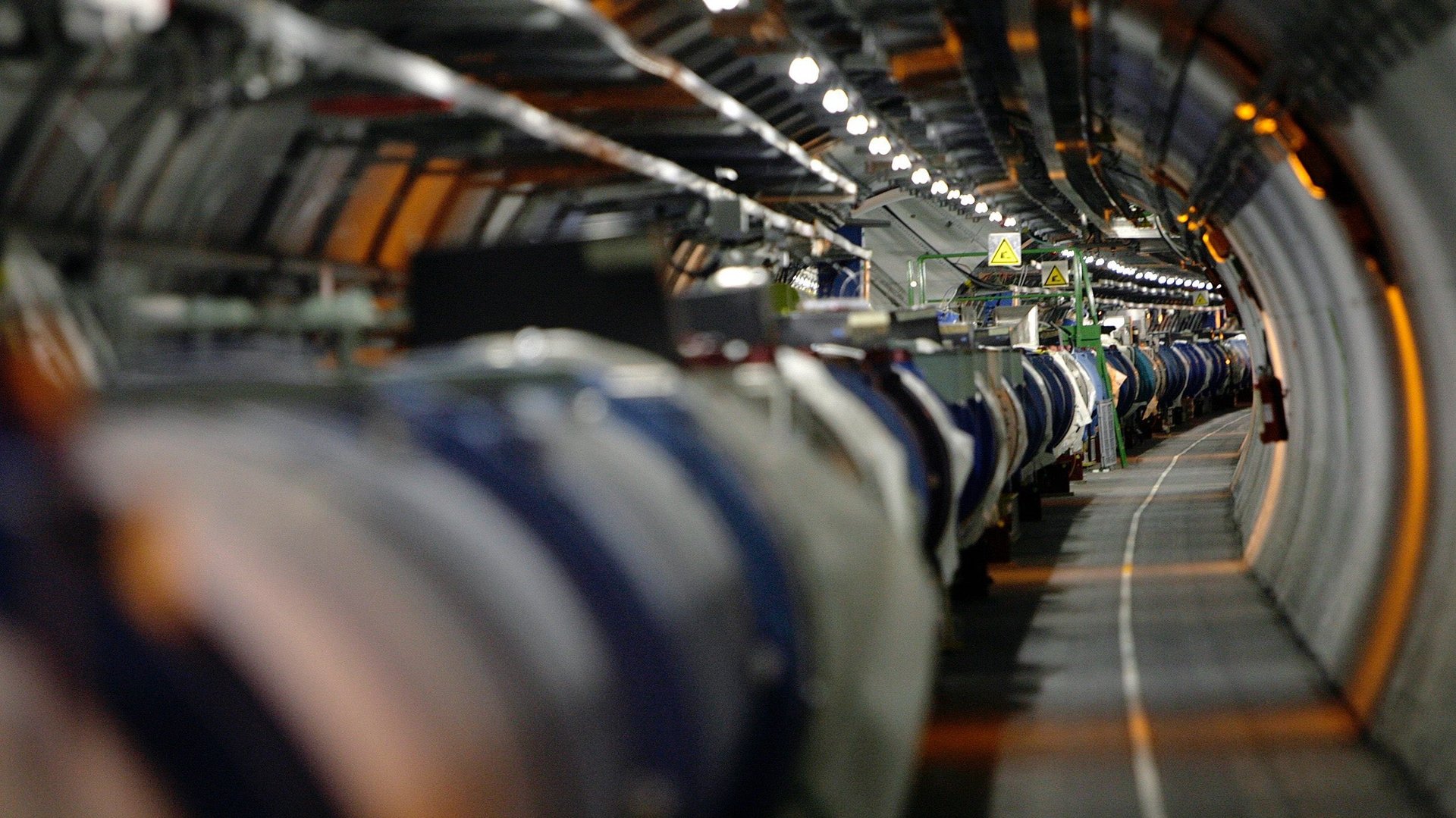RIP: the ambitious little weasel that just shut down the world’s largest particle collider
One of largest, most important research projects in the world, the Large Hadron Collider (LHC), has been taken offline. The giant particle accelerator that sits beneath the French-Swiss border and used to uncover new information about what happened in the universe right after the Big Bang, has apparently been damaged by a woodland creature, most likely a weasel, according to NPR.


One of largest, most important research projects in the world, the Large Hadron Collider (LHC), has been taken offline. The giant particle accelerator that sits beneath the French-Swiss border and used to uncover new information about what happened in the universe right after the Big Bang, has apparently been damaged by a woodland creature, most likely a weasel, according to NPR.
“We had electrical problems, and we are pretty sure this was caused by a small animal,” Arnaud Marsollier, a representative for CERN, the group that operates the HLC and the owners of the internet’s first website , told NPR. Marsollier added that the LHC is in a wooded area and that CERN believes the critter was most likely “a weasel, probably.” (Marsollier wasn’t immediately available to confirm this.) Weasels, common in Europe, Asia and North America, are related to stoats, polecats and minks; some of them turn white in winter and are known then as ermine.
Scientists at CERN had been using the 17-mile-long facility to find further information about the creation of the universe, after they confirmed the existence of the Higgs boson particle in 2012. The so-called “God particle” is believed to be a subatomic particle that gives matter its mass, and as CNN said in 2013, it fills a hole in physicists’ understanding of the way the universe is constructed. According to NPR, the collider will most likely remain offline until the middle of May while the damage is fixed.
Unluckily, this isn’t the first time the Large Hadron Collider has had animal issues: According to Nature, the particle collider was previously damaged by a bird that dropped a baguette on it and short-circuited a piece of equipment that supported the LHC. NPR points out that in 2006, a group of raccoons undertook an “attack” on a particle collider in Illinois.
Perhaps the animals know something about the fate of the universe that we don’t.